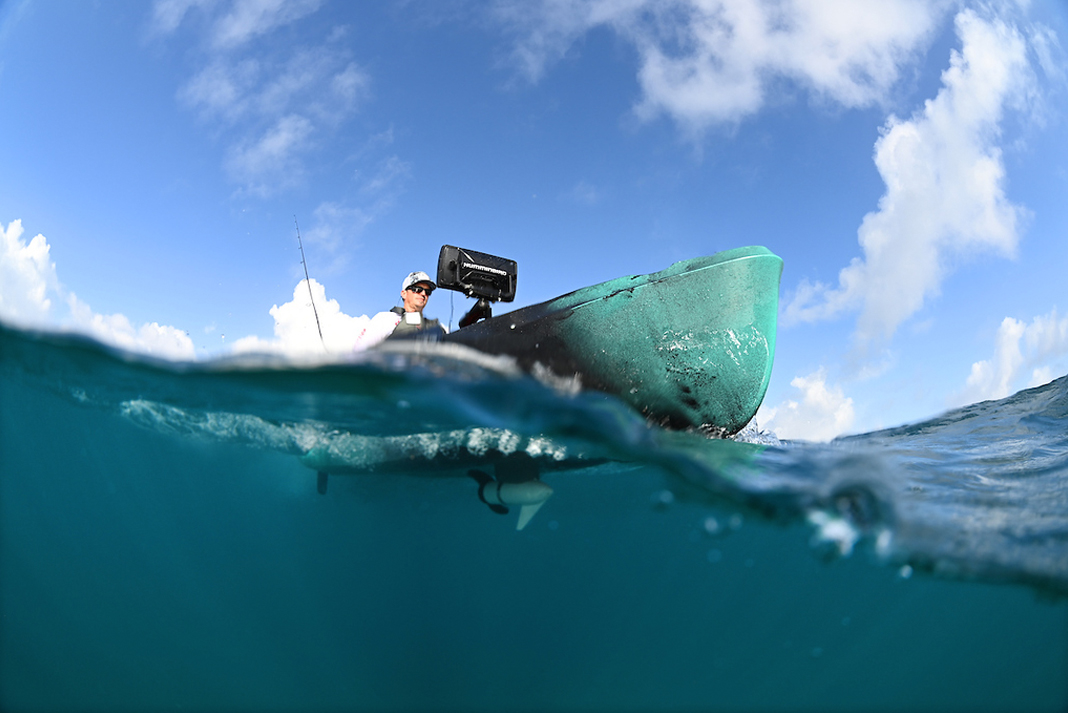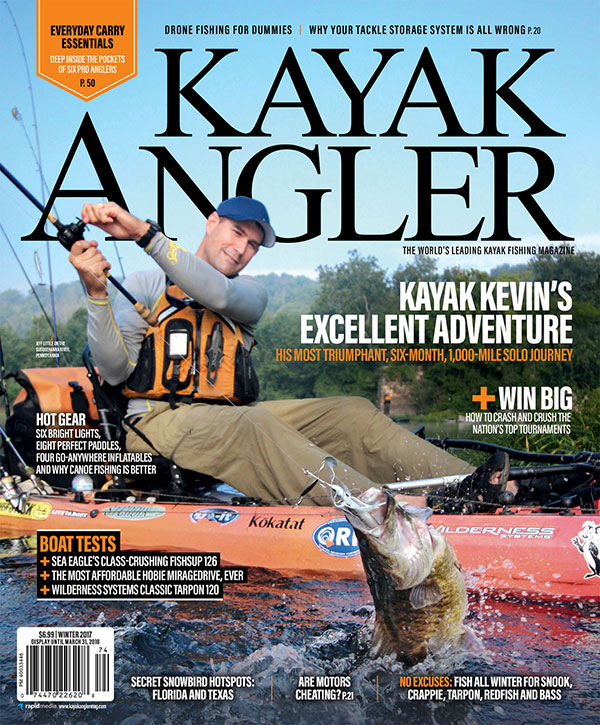First came paddles, then came pedals. Now anglers are increasingly choosing electric motors to power their kayaks. No one argues these systems aren’t great for people who can’t or don’t want to paddle, but suggest motorized kayaks should be allowed in kayak fishing tournaments and you’ll likely start a fist fight.
Motor Trend: Top Tournament Directors on What’s Fair
Despite the contentious debate online, a slew of events are permitting able-bodied kayakers with electric motors to compete against human-powered vessels. Since the first motorized kayaks hit the water, tournament pros have used them to pre-fish before tournament day. Savvy competitors arrive to the tournament location days before the event, use a motorized kayak to search out the best waters and then return on the big day in a human-powered boat. The tactic had its critics, and some events even banned motorized pre-fishing outright. Most anglers seem to agree that using motors is not in the spirit of kayak fishing, and it gives the motorized boats an unfair advantage.

So, it took many people by surprise when big tournaments started to permit motors on game day. One of the first adopters was Kayak Bass Fishing (KBF), America’s biggest tournament series. KBF president Chad Hoover, who has a long history with motorized kayaks, only hesitated a little to propel his tournament series into the future.
For Hoover, allowing motors into KBF tournaments is an inevitable step in the sport’s progression. “At first I buckled to public pressure and didn’t allow motors,” he admits. As more manufactures offered motorized options, more anglers started using them; Hoover made the bold move to allow motors in 2012.
Instead of only allowing motors for physically challenged anglers, Hoover decided to open the field to any angler who wants to use an electric motor. “You can’t nit-pick who can and can’t use a motor,” he says. “If an angler wins with a motor everyone will poo-poo him.” Since anyone can use a motor, no one can complain when a motorized kayak wins. “That passes the definition of fair,” Hoover adds. Hoover points out the electric motor manufacturer Torqeedo came on as a sponsor in 2017 after he had allowed motors in tournaments. “They didn’t affect my decision,” he stresses.
Motors Remain Prohibited at Some Events
While some tournaments across the country have followed suit, many other events aren’t onboard. Drew Gregory, an accomplished tournament angler and director of River Bassin’ Tournament Trail, is still on the fence.
As a competitor, Gregory admits he would use a motor in events where it is allowed. However, River Bassin’ prohibits motors in its events. “Most people wouldn’t choose a motor anyway due to the rocky, shallow nature of many rivers, plus the extra weight it adds makes many steep, tough access points hard to get to,” he explains.
Captain Pat Horrigan, long-time director of Kayak Fishing Classics tournament series, prohibits motors in all events.
“We tried allowing motors in one event,” he remembers, “but people complained so much that I discontinued it.”
Public perception has it that a motorized kayak can move faster, allowing the angler to cover more ground and catch more fish, but Horrigan doesn’t agree. “I’ve seen anglers go from paddling to pedaling and their numbers drop in the tournament,” he says. Jumping around from spot to spot looking for fish reduces the time the angler has his lure in the water. “If you slow down, you will catch more,” he explains. Still, he doesn’t fight the perception that motors are unfair.
The Final Say is Up to Consumers
Despite their decision in their own tournaments, these two directors don’t criticize events that allow motors. “People choose what tournaments to fish, if they don’t like the rules they won’t fish the tournament,” Gregory says. It comes down to economics, in the end consumers control the market.
So far, motors don’t seem to have a great effect on who wins. “When an angler with a motor wins three or four tournaments we’ll see what people say,” Gregory points out. If motors prove to be an unfair advantage, he expects events will have to add a motorized division that could reduce the prize payout.
Hoover says the KBF hasn’t seen motors boost anyone’s winnings. “We have seen a class of angler who are so good that motors won’t affect their chances to win,” he says. He insists that a motor won’t offer a long-term advantage. “It won’t allow a mediocre angler to consistently beat the elite guys,” he says, adding “but it might give an elite guy an advantage over other elite guys.”
Racing to the top. | Feature photo: Michael Ernst










